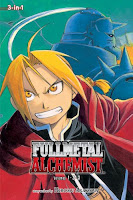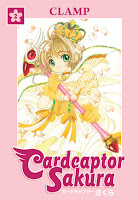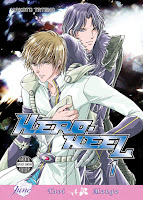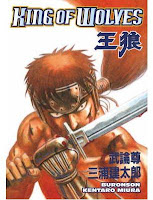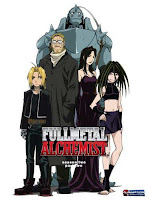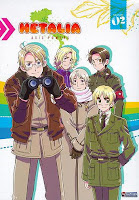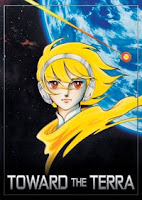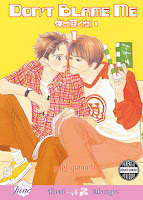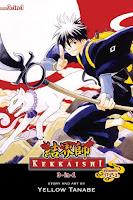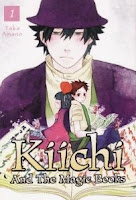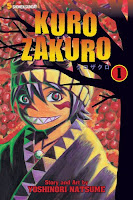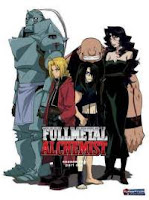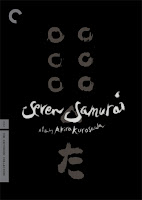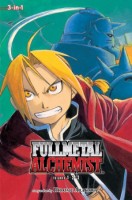 And the winner of the Fullmetal Alchemist Giveaway is…Naomi!
And the winner of the Fullmetal Alchemist Giveaway is…Naomi!
As the winner, Naomi will be receiving a copy of the first Fullmetal Alchemist omnibus released by Viz Media which collects the first three volumes of Hiromu Arakawa’s excellent manga. Because Fullmetal Alchemist is such a great series, and because Arakawa is such a great mangaka, for this giveaway I asked participants to tell me about some of their other favorite women mangaka. The responses were fantastic and I highly recommend reading the Fullmetal Alchemist Giveaway comments for all of the details. As usual, I also took the giveaway as an opportunity to compile a list. In this particular case, a list of some great shounen and seinen manga which are written or illustrated by women and are available in English.
Some great shounen and seinen manga by women mangaka:
Angelic Layer by CLAMP
Afterschool Charisma by Kumiko Suekane
Black Butler by Yana Toboso
Blue Exorcist by Kazue Kato
Blood+ by Asuka Katsura
Bloody Cross by Shiwo Komeyama
A Bride’s Story by Kaoru Mori
Code: Breaker by Akimine Kamijyo
Chobits by CLAMP
Chi’s Sweet Home by Kanata Konami
D. Gray-Man by Katsura Hishino
Deadman Wonderland written by Jinsei Kataoka, illustrated by Kazuma Kondou
Dorohedoro by Q Hayashida
Drug & Drop by CLAMP
Emma by Kaoru Mori
ES: Eternal Sabbath by Fuyumi Soryo
Flowers & Bees by Moyoco Anno
Fullmetal Alchemist by Hiromu Arakawa
Gangsta by Kohske
Hikaru no Go written by Yumi Hotta, illustrated by Takeshi Obata
House of Five Leaves by Natsume Ono
Inu x Boku SS by Cocoa Fujiwara
InuYasha by Rumiko Takahashi
Kekkaishi by Yellow Tanabe
Lament of the Lamb by Kei Toume
Magi by Shinobu Ohtaka
Maison Ikkoku by Rumiko Takahashi
Mermaid Saga by Rumiko Takahashi
Mushishi by Yuki Urushibara
Nabari no Ou by Yuhki Kamatami
Noragami: Stray God by Toka Adachi
Pandora Hearts by Jun Mochizuki
Ranma 1/2 by Rumiko Takahashi
Reborn! by Akira Amano
Saiyuki by Kazuya Minekura
Sakuran by Moyoco Anno
Tactics by Sakura Kinoshita and Kazuko Higashiyama
To Terra… by Keiko Takemiya
Tsubasa by CLAMP
What Did You Eat Yesterday? by Fumi Yoshinaga
Wolfsmund by Mitsuhisa Kuji
xxxHolic by CLAMP
Zombie-Loan by Peach-Pit
This list is by no means exhaustive! Phenomenal women mangaka have created tons of great manga, far to many for me to list here. Also, thank you to everyone who shared their favorite women mangaka creators with me! I hope to see you again for the next manga giveaway, too.

